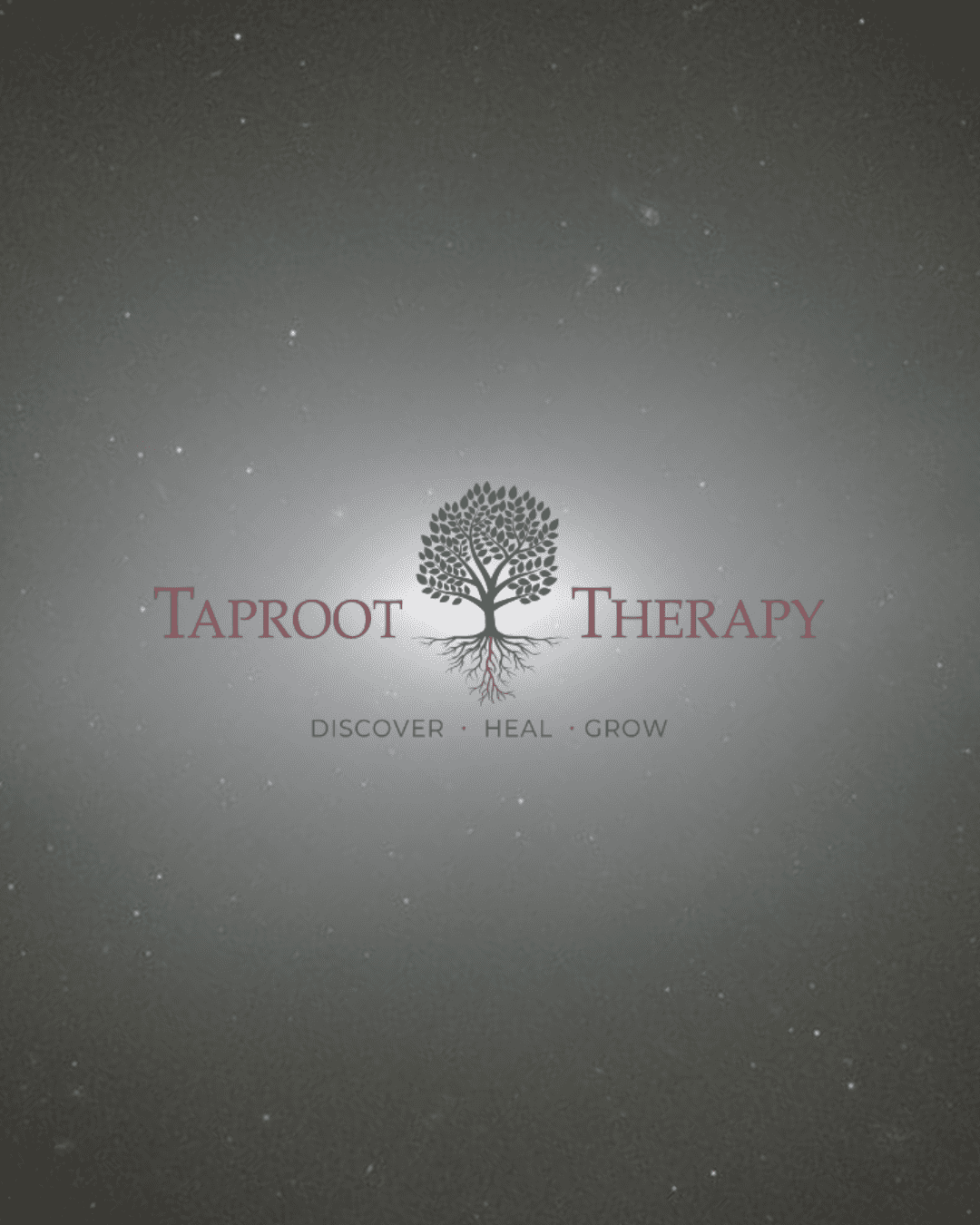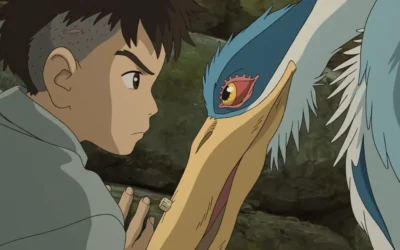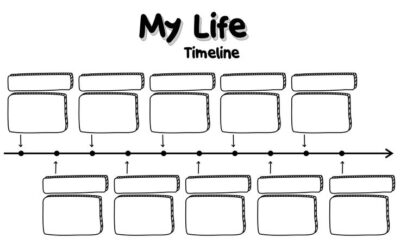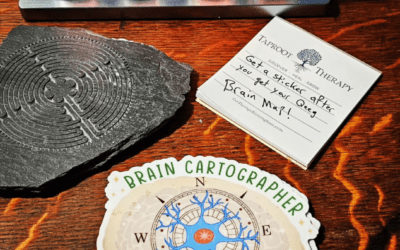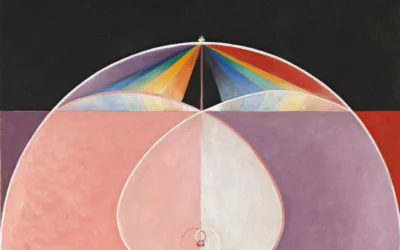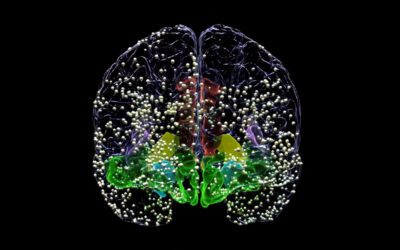A Pioneering Exploration of the Psyche's Hidden Realms In an enthralling podcast episode, psychotherapist and author Alex Monk takes listeners on a captivating journey through the uncharted territories of the human psyche. Drawing upon his trailblazing book "Trauma and the Supernatural in Psychotherapy," Monk introduces a revolutionary framework for understanding the intricate entanglement of relational trauma, unconscious phantasies, and supernatural experiences. His work invites clinicians to venture beyond the...
Taproot Therapy Podcast Episodes: Behind the Conversations
Exploring the Deeper Stories from Our Discover + Heal + Grow Podcast
Welcome to our podcast episodes blog category, where we dive deeper into the conversations, ideas, and insights from the Discover + Heal + Grow podcast. This section provides extended show notes, guest resources, follow-up discussions, and behind-the-scenes perspectives on the topics we explore in each episode.
What You’ll Find in These Articles
Our podcast episode content goes beyond what you hear in the audio. We provide detailed show notes with timestamps, resource links, and expanded explanations of complex concepts discussed during interviews. When we explore Jungian psychology with addiction recovery experts or dive into phenomenology with philosophy professors, these articles offer the additional context and resources that time constraints don’t allow in the actual episodes.
You’ll also find guest spotlights that provide more background on our interview subjects, their work, and how their expertise connects with therapeutic practice in Birmingham and beyond. Whether we’re talking with trauma researchers, depth psychologists, or cultural critics, these pieces help you understand the broader context of their contributions to mental health understanding.
Episode Deep Dives and Extended Analysis
Some conversations deserve more exploration than a single podcast episode allows. Our episode analysis pieces examine recurring themes across multiple episodes, trace the evolution of ideas throughout our podcast series, and connect guest insights with broader movements in psychology, philosophy, and therapeutic practice.
These articles also address listener questions and comments that emerge after episodes air, providing space for ongoing dialogue about complex topics like metamodernism in therapy, the intersection of spirituality and mental health, or how ancient wisdom traditions inform contemporary therapeutic approaches detailed throughout our main services.
Guest Resources and Follow-Up Content
When podcast guests share books, research, techniques, or frameworks during their interviews, these articles provide comprehensive resource lists with links, explanations, and practical applications. We often discover additional insights from our guests after recording that deserve sharing, and this space allows us to continue those conversations.
You’ll find expanded bibliographies, technique demonstrations, and practical applications of concepts discussed in episodes. When we explore evidence-based practice critiques or discuss integration of ancient wisdom with modern therapy, these articles provide the additional depth and context that enhances understanding beyond what audio format allows.
Birmingham Connections and Local Applications
Our podcast often explores how therapeutic insights apply specifically to Birmingham’s cultural context, historical background, and community needs. These articles expand on those local connections, providing practical information about how podcast topics relate to mental health resources and cultural considerations specific to Alabama residents.
Whether we’re discussing how civil rights history informs trauma understanding or how Southern cultural values intersect with therapeutic approaches, these pieces help bridge the gap between philosophical discussions and practical applications for Birmingham-area residents seeking mental health support.
What You’ll Discover
From episode transcripts and detailed show notes to extended guest interviews and topic analyses, this blog category serves as your comprehensive guide to the ideas, people, and insights featured on our podcast. Whether you’re a mental health professional seeking deeper understanding of topics we discuss or someone curious about the intersection of psychology, philosophy, and culture, these articles provide the context and resources to take your exploration further.
Contact Taproot Therapy Collective: 📍 2025 Shady Crest Dr. Suite 203, Hoover, AL 35216
📞 (205) 598-6471
🌐 www.GetTherapyBirmingham.com
🎧 Podcast: gettherapybirmingham.podbean.com
Discover + Heal + Grow with Taproot Therapy Collective – Birmingham’s resource for in-depth exploration of therapeutic conversations and mental health insights.
The “Lost World” of Miyazaki’s Masterpiece
Interviews and Case Studies, Phenomenology and Existential Psychology, Psychology, Psychology of Buildings and Architecture, Psychology of Film and TV, Psychology of Media and Culture, Symbolism and Meaning in Psychotherapy
*This review contains spoilers for the film The Boy and the Heron What is The Boy and the Heron trying to tell us? To escape from this depressing situation, they often find themselves wishing they could live in a world of their own - a world they can say is truly theirs, a world unknown even to their parents. To young people, anime is something they incorporate into this private world. I often refer to this feeling as one yearning for a lost world. It's a sense that although you may currently be living in a world...
Charles Eames: Pioneering Designer of the Modern Era
Interviews and Case Studies, Psychology of Buildings and Architecture, Psychology of Mystics, Gurus, and Spiritual Philosophers
Who were Charles and Ray Eames? Charles Eames (1907-1978) was a pioneering American designer whose groundbreaking work in furniture, architecture, and film helped define the aesthetic of postwar modernism. In partnership with his wife and creative collaborator Ray Eames, Charles developed a design philosophy centered on the belief that good design should be accessible to all. From their iconic molded plywood chairs to their experimental Case Study Houses, the Eameses' work embodied the optimism and innovation of...
The Confusion Between Jung and the New Age
Interviews and Case Studies, Psychology of Mystics, Gurus, and Spiritual Philosophers
Issues in Defining the Self in Psychotherapy Carl Jung was a seminal thinker whose ideas have penetrated popular culture to a remarkable degree. However, this diffusion has been a double-edged sword, as Jungian concepts have often been simplified, misunderstood, and coopted by various ideological movements. Perhaps no movement has been more guilty of this than...
The Path to Recovery: An Overview of Addiction Treatment Options
Interviews and Case Studies, Recovering from Abuse, Self Help and Personal Development, Therapy Resources, Tips and Tools, Trauma Treatment in Alabama, Trauma, Depth Psychology, and Social Work
What Type and Length of Addiction Treatment is Best? Addiction is a complex and chronic condition that requires professional treatment and ongoing support to achieve and maintain recovery. With the variety of treatment options available, it can be challenging to navigate the landscape of addiction care. This article provides an overview of the most common addiction treatment approaches, empowering individuals and families to make informed decisions about their path to recovery. Levels of Addiction Treatment...
Lifespan Integration for Specific Mental Health Concerns
Interviews and Case Studies, Lifespan integration in Alabama, Trauma Treatment in Alabama, Trauma, Depth Psychology, and Social Work, Understanding Neurodivergence and Neurodiversity in Therapy
Lifespan Integration for Anxiety and Panic Disorders Anxiety and panic disorders are characterized by chronic, debilitating feelings of fear, worry, and unease. These feelings are often rooted in early, unresolved experiences of threat, danger, or vulnerability. Lifespan Integration can be a powerful tool for resolving the underlying traumas and attachment wounds that fuel anxiety and panic. By processing these experiences and linking them to more adaptive, resourced states, LI can help to rewire the neural...
Interview with James Maffie on Aztec, Philosophy, Mythology, Metaphysics
Interviews and Case Studies, Psychology of Buildings and Architecture
In a recent interview, Dr. James Maffie, author of "Aztec Philosophy," shared his insights into the complex and fascinating world of Aztec metaphysics. Dr. Maffie explained that the Aztec worldview centers around the concept of "teotl," a constant energy in motion that permeates all aspects of the universe. This energy manifests in three primary patterns: "olin" (bouncing, oscillating motion), "malinalli" (spiraling, twisting motion), and "nepantla" (back-and-forth, weaving motion). These patterns are evident in...
Interview with Janjah Lalich on Cults, High Control Groups and Deprogramming
Interviews and Case Studies, Psychology of Conspiracy Theories
In this riveting episode, we delve into the complex world of cults and high control groups with Dr. Janja Lalich, a distinguished professor emeritus and renowned cult expert. Dr. Lalich shares her personal journey from a cult member to a leading authority in the field, offering unique insights into the mechanisms of control and manipulation employed by cult leaders. We explore the psychological underpinnings that make individuals susceptible to cults, the devastating impact on those who escape, and the challenges...
Interview with Psychotherapist Win Schepps on Why Children Need to Know it’s Ok to Cry
Interviews and Case Studies, Trauma Treatment in Alabama, Trauma, Depth Psychology, and Social Work
Interview with Winston Schepps 🌟📚 Meet Win Scheppes: A Lifelong Friend, Mentor, and Dedicated Social Worker in Birmingham Alabama at 86! 🤝💼 Discover the inspiring story of Win Scheppes, a remarkable social worker who continues to make a difference in people's lives well into his 86th year. With unwavering passion, he exclaims, "I love doing therapy so damn much," showcasing his unrelenting commitment to his profession. For an incredible 57 years, he has served his community from his Homewood office,...
Interview with Martin Gledhill
Interviews and Case Studies, Psychology of Buildings and Architecture, Psychology of Mystics, Gurus, and Spiritual Philosophers
Allow us to introduce Mr. Martin Gledhill, an accomplished researcher and writer who is currently in the writing stage of his Ph.D. on Carl Jung's Bollingen Tower—a work that he hopes will soon become a book. Before embarking on this captivating and all-consuming project, Martin held the position of senior lecturer at the Department of Architecture & Civil Engineering, where he focused on exploring the profound symbolism and spiritual essence embedded within architecture. 🏛️💫 This is just an excerpt of the...
Stellate Ganglion Block for Trauma and PTSD – Interview with Dr. James Lynch
Did you enjoy this article? Checkout the podcast here: https://gettherapybirmingham.podbean.com/ Stellate Ganglion Block (SGB)—a medical procedure that effectively treats symptoms associated with posttraumatic stress disorder (PTSD)—is an injection of local anesthetic in the neck to temporarily block the cervical sympathetic chain which controls the body’s fight-or-flight response. SGB has been safely used for over 80 years for many other reasons but was discovered ten years ago to provide relief of PTSD...
Interview with A. Savage of the Parquet Courts
A. Savage is a brilliant visual and musical artist. As front man of the Parquet Courts he has seven ground breaking rock albums. As a visual artist he is makes beautiful impressionist work that has echoes of Wassily Kandinsky, playful modernism of Paul Klee and even the murals of Emil Bisttram. We are so grateful for his time with us and his body of work in the world. Here he talks about his process and personality as it relates to art. Check out his other work here: Music@ https://www.parquet-courts.com/ Visual...
Interview with David Tacey on Carl Jung, Mysticism, and the Politics of Religion
Interviews and Case Studies, Psychology of Mystics, Gurus, and Spiritual Philosophers
Dr. David Tacey is a professor in literature and depth psychology at La Trobe University, Melbourne. He is the author of eight books, including Jung and the New Age (2001), The Spirituality Revolution (2003) and How to Read Jung (2006).He was born in Melbourne and raised in Alice Springs, central Australia. It was here that he was influenced by Aboriginal cultures and their religion and cosmology. After completing a PhD degree at the University of Adelaide, David Tacey was a Harkness Fellow in...
Ketamine for Trauma and PTSD – Interview with Dr. Harrison Irons from Southern Ketamine and Wellness
Interviews and Case Studies, Ketamine for Trauma and PTSD
https://www.youtube.com/watch?v=YKeR4siEbPc We work with many providers in the area to make sure that our clients receive the best care for their unique issue. One of the providers in the area of medical IV Ketamine is Southern Ketamine and Wellness. Dr. Harrison Irons was kind enough to sit down with us and explain the process for receiving ketamine treatment. Ketamine infusions are used in the treatment of PTSD, panic disorders, dissociation, dopamine disorders, mood disorders and the management of chronic...
Want to Be a Better Therapist? Learn How to Do an Exit Interview
Many therapists don’t bother with exit interviews when a patient’s treatment is concluded and the patient is terminating therapy. I find that they are helpful and that many of the tips that I collected from wizened therapists when I began my career came from insights that they had gleaned from patients in thorough exit interviews. Therapists fail only when they refuse to admit that the way they are trying to reach and assist patients in therapy is failing and thus refuse to change. When I give an exit interview...

